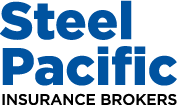The decision of the NSW Government to abolish its emergency services levy (ESL) on insurance policies is a major win for brokers following years of industry lobbying, says NIBA’s CEO.
The NSW ESL will be scrapped in favour of a property-based charge, paid alongside council rates, from July 2017.
NSW is the last mainland state to abolish the ESL, which has accounted for a 20% increase in insurance premiums for NSW households, driving the cost of home and contents cover higher than any other state or territory in Australia.
Professor Allan Fels has been appointed ESL Monitor to oversee the transition and will have powers to seek fiscal penalties up to $10 million from companies for unreasonable prices, effective from 10 December through to 31 December 2018.
NIBA CEO Dallas Booth says the move has been a long time in the making and marks a major win for the industry, with advocacy for fairer insurance taxes spanning back decades.
“This is fantastic news for policyholders in NSW. The burden of insurance taxes has been recognised as unjustifiable and unfair from as long ago as the HRH Royal Commission in 2003,” Booth says.
“Everyone has always agreed unanimously that they needed reform. An incredible amount of work has been done by the Insurance Council of Australia (ICA) and by NIBA over many, many years to point out the inequity and unfairness of this process,” Booth adds.
“Clearly, this is a major win for our brokers customers, as the policyholders of NSW, to make sure that the important cost of funding our emergency services is spread across everybody who receives the benefit of those services.
“The other critical thing is that the government has undertaken to consult on transition. Transition is critically important so that there is an orderly change from the current process to the new process.
“We look forward to working with the ICA and the NSW government, and the emergency services to make sure that there is an appropriate, proper and orderly transition through to the new revenue process.”
ICA CEO Rob Whelan says the change will provide NSW households with the affordability required to quash underinsurance, and also help boost the state’s economy.
“Currently, NSW households face the triple tax whammy of GST, stamp duty and the ESL adding almost 45% to the base premium of their home and contents insurance costs,” Whelan says.
“This enormous impost contributes to the incidence of noninsurance and underinsurance, leaving many households financially vulnerable.”
“At the same time, this inefficient, regressive tax has been holding back the state’s economy,” Whelan adds.
“Research released by the ICA just last month found replacing the ESL could boost state government coffers by $84 million through increasing household consumption.”
Insurers, including IAG, Suncorp, QBE and Ai Group, have been quick to welcome the ESL abolition and the premium reduction for their customers.
IAG Consumer Division Chief Executive Anthony Justice says: “IAG is a strong advocate for improved taxation bases and reform that will shift revenue dependency from transaction style taxes towards those that offer a greater economic benefit for Australian households.”
Suncorp Group spokesperson Damien Butler says the change is fairer on households who have been paying for an essential service for all those who live in NSW.
“This will remove the inequity of insurance policyholders doing all the heavy lifting when it comes to funding an essential service that everyone has access to,” Butler says.
“Customers in NSW will no longer have to pay three taxes for the right to reduce their financial vulnerability by taking out insurance.”
Ai Group NSW Director Mark Goodsell says the restructuring of state and territory taxes is long overdue.
“We need to move away from the present, highly inefficient taxes to an approach that is much more favourable to investment, innovation and employment creation,” Goodsell says.
Source: Insurance & Risk
